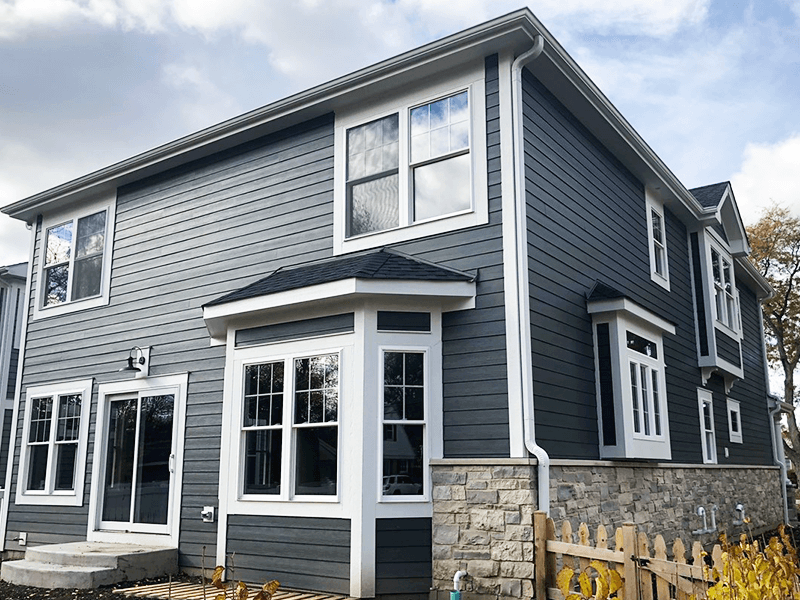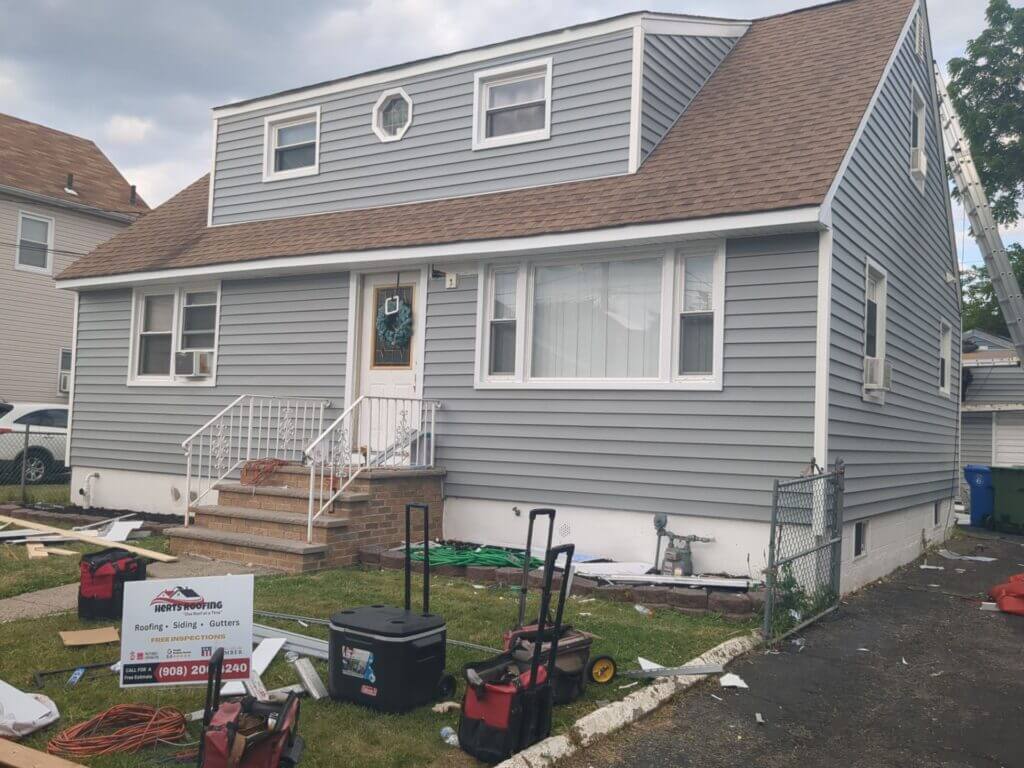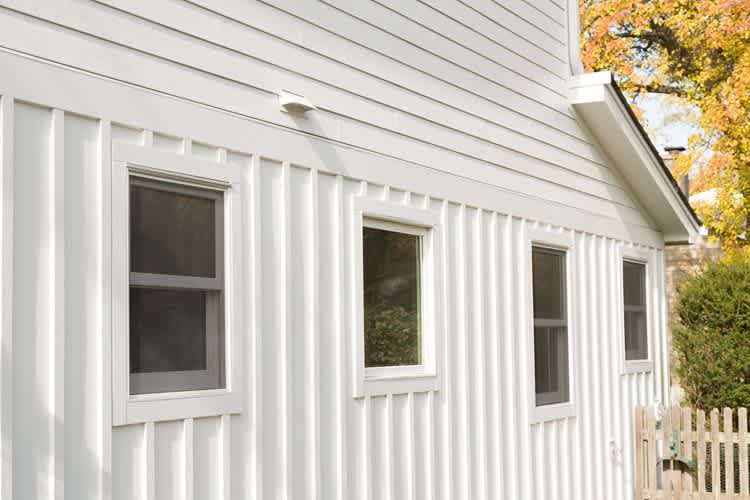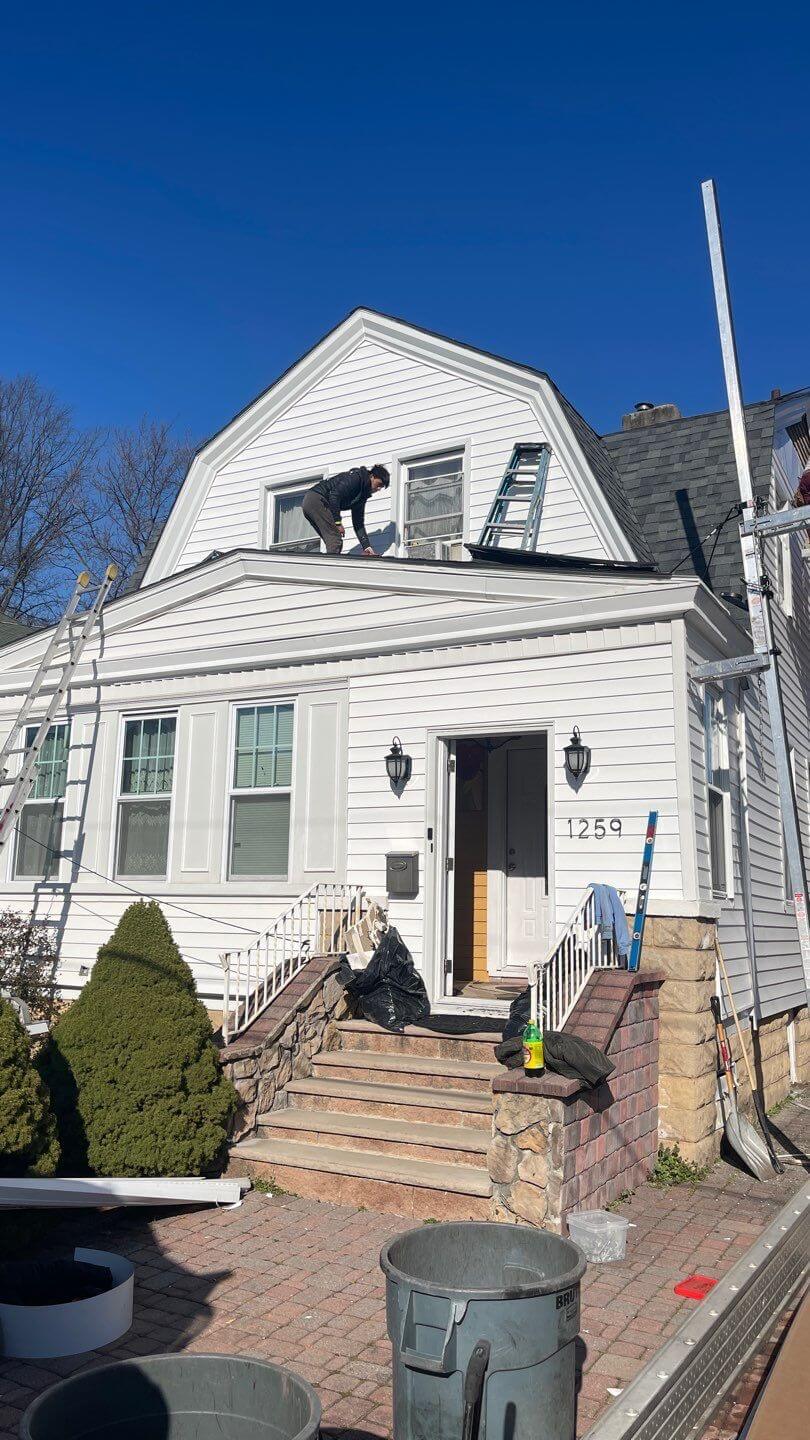The Ultimate Guide to Low-Maintenance Siding for New Jersey Homes
Introduction
As a homeowner in New Jersey, you know that your home’s exterior needs to withstand a wide range of weather conditions. From scorching summers to freezing winters, and everything in between, your home’s siding plays a crucial role in protecting your investment and maintaining its curb appeal. But who wants to spend their weekends scraping, painting, and repairing siding? That’s where low-maintenance siding options come into play. In this comprehensive guide, we’ll explore the best low-maintenance siding choices for New Jersey homes, helping you make an informed decision that will keep your house looking great for years to come.
Why Low-Maintenance Siding Matters in New Jersey
The Garden State’s Unique Climate Challenges
New Jersey’s climate can be tough on home exteriors. With hot, humid summers and cold, snowy winters, your siding needs to be up to the task. Let’s break down why low-maintenance siding is so important in our state:
- Temperature fluctuations: New Jersey experiences significant temperature swings throughout the year, which can cause materials to expand and contract.
- Moisture: From coastal humidity to inland precipitation, moisture is a constant concern for homeowners.
- UV exposure: Strong sunlight can fade and damage certain siding materials over time.
- Salt air: For homes near the coast, salt air can be corrosive and damaging to some siding types.
The Benefits of Low-Maintenance Siding
Opting for low-maintenance siding offers numerous advantages for New Jersey homeowners:
- Saves time and effort on upkeep
- Reduces long-term costs associated with repairs and repainting
- Maintains a fresh, attractive appearance for longer
- Provides better protection against the elements
- Can improve energy efficiency and comfort in your home
Now that we understand why low-maintenance siding is so crucial, let’s dive into the top options available for New Jersey homes.
Vinyl Siding: The Popular Choice

Why Vinyl Siding is a Hit in New Jersey
Vinyl siding has been a go-to choice for many New Jersey homeowners, and for good reason. It offers a combination of affordability, durability, and low maintenance that’s hard to beat. Here’s why vinyl siding continues to be popular in the Garden State:
- Cost-effective: Vinyl siding is one of the most affordable options on the market.
- Easy to install: Many vinyl siding contractors in NJ can complete an installation quickly and efficiently.
- Wide range of colors and styles: You can find vinyl siding that mimics the look of wood, stone, or other materials.
- Low maintenance: A simple wash with soap and water is usually all it takes to keep vinyl siding looking great.
Pros and Cons of Vinyl Siding
Like any siding option, vinyl has its strengths and weaknesses. Let’s take a closer look:
Pros:
- Affordable initial cost
- Resistant to insects and rot
- Doesn’t require painting
- Available in many colors and styles
- Can last 20-40 years with proper care
Cons:
- Can crack or warp in extreme temperatures
- May fade over time, especially in direct sunlight
- Not as environmentally friendly as some other options
- Can be damaged by high winds or flying debris
Vinyl Siding Installation in NJ

If you’re considering vinyl siding for your New Jersey home, it’s crucial to work with experienced professionals. Here are some tips for finding the best vinyl siding contractors in NJ:
- Look for licensed and insured contractors
- Check reviews and ask for references
- Get multiple quotes to compare prices and services
- Ask about warranties on both materials and labor
- Ensure they’re familiar with local building codes and requirements
Fiber Cement Siding: The Durable Alternative

What Makes Fiber Cement Siding Stand Out
Fiber cement siding has gained popularity in recent years as a more durable alternative to vinyl. This material, made from a mixture of cement, sand, and cellulose fibers, offers impressive strength and longevity. Here’s why fiber cement siding is worth considering for your New Jersey home:
- Exceptional durability: Resistant to rot, insects, and fire
- Long-lasting: Can last 50 years or more with proper maintenance
- Realistic appearance: Mimics the look of wood or masonry convincingly
- Weather-resistant: Stands up well to New Jersey’s varied climate
- Paintable: Unlike vinyl, fiber cement can be repainted if you want to change your home’s color
Fiber Cement vs. Vinyl Siding: A New Jersey Perspective
When comparing fiber cement and vinyl siding for New Jersey homes, several factors come into play:
- Durability: Fiber cement generally outperforms vinyl in terms of longevity and resistance to damage.
- Cost: Vinyl is typically less expensive upfront, but fiber cement may offer better long-term value.
- Maintenance: Both are low-maintenance, but fiber cement may require repainting every 10-15 years.
- Energy efficiency: Fiber cement offers slightly better insulation properties than vinyl.
- Environmental impact: Fiber cement is considered more eco-friendly due to its longer lifespan and recyclable components.
Installing Fiber Cement Siding in New Jersey
If you’re leaning towards fiber cement siding for your home, keep these points in mind:
- Professional installation is crucial due to the material’s weight and specific handling requirements.
- Look for contractors experienced in fiber cement installation specifically.
- Ensure proper ventilation and moisture barriers are installed to prevent issues down the line.
- Consider the added cost of painting if you choose primed fiber cement boards.
Other Durable Siding Options for NJ Homes
While vinyl and fiber cement are popular choices, they’re not the only low-maintenance siding options available to New Jersey homeowners. Let’s explore some other alternatives:
Engineered Wood Siding
Engineered wood siding offers the look of natural wood with enhanced durability and lower maintenance requirements. It’s made from wood fibers and resins, making it resistant to rot, insects, and moisture damage.
Pros:
- More affordable than natural wood
- Environmentally friendly (often made from recycled materials)
- Can be painted or stained
- Resistant to warping and splitting
Cons:
- May require more maintenance than vinyl or fiber cement
- Can be damaged by prolonged moisture exposure if not properly maintained
Metal Siding
Metal siding, particularly aluminum and steel, offers excellent durability and low maintenance. It’s an especially good choice for coastal areas due to its resistance to salt air corrosion.
Pros:
- Extremely durable and long-lasting
- Fire-resistant
- Recyclable and eco-friendly
- Available in various colors and styles
Cons:
- Can be noisy during rain or hail
- May dent from impacts
- Higher initial cost compared to some other options
Composite Siding
Composite siding is made from a mixture of materials, often including recycled plastics and wood fibers. It offers a balance of durability, low maintenance, and aesthetic appeal.
Pros:
- Resistant to rot, insects, and moisture
- Can mimic the look of wood or other materials
- Environmentally friendly (often made from recycled materials)
- Low maintenance requirements
Cons:
- Can be more expensive than some other options
- May fade over time in direct sunlight
- Limited color options compared to vinyl or fiber cement
Factors to Consider When Choosing Siding for Your NJ Home
Selecting the right siding for your New Jersey home involves weighing several factors. Here are some key considerations to keep in mind:
Climate Resilience
New Jersey’s varied climate demands siding that can withstand:
- Freezing temperatures and snow in winter
- Hot, humid conditions in summer
- Coastal salt air (for homes near the shore)
- Strong winds and occasional storms
Choose a siding material that’s known for its weather resistance and durability in diverse climates.
Energy Efficiency
Your siding plays a role in your home’s overall energy efficiency. Look for options that:
- Provide good insulation
- Offer the possibility of adding extra insulation during installation
- Help reduce heating and cooling costs
Some siding materials, like fiber cement and engineered wood, naturally offer better insulation than others.
Aesthetic Appeal and Home Value
The right siding can significantly enhance your home’s curb appeal and potentially increase its value. Consider:
- How well the siding matches your home’s architectural style
- The range of colors and textures available
- Whether the siding can be painted (if you might want to change colors in the future)
- How the siding will look as it ages
Long-Term Costs
While the initial cost is important, also factor in long-term expenses such as:
- Maintenance requirements (cleaning, painting, repairs)
- Expected lifespan of the material
- Warranty coverage
- Potential energy savings
Sometimes, a higher upfront cost can lead to savings over time due to lower maintenance needs and better durability.
Environmental Impact
If sustainability is a priority for you, consider:
- The manufacturing process of the siding material
- Whether the siding is recyclable at the end of its life
- The energy efficiency of the siding
- The expected lifespan (longer-lasting materials generally have a lower environmental impact)
Maintaining Your Low-Maintenance Siding
Even low-maintenance siding requires some care to keep it looking its best and performing well. Here are some tips for maintaining different types of siding:
Vinyl Siding Maintenance
- Clean annually with a soft brush or cloth and a mixture of water and mild detergent
- Avoid using a pressure washer, which can force water behind the siding
- Check for loose or damaged panels and repair promptly
- Keep shrubs and trees trimmed away from the siding
Fiber Cement Siding Maintenance
- Clean annually with water and a soft brush
- Repaint every 10-15 years, or as needed
- Inspect regularly for signs of damage or moisture issues
- Ensure proper caulking around windows and doors
General Siding Maintenance Tips
Regardless of your siding type, these general tips can help prolong its life:
- Conduct regular visual inspections, especially after severe weather
- Address any issues promptly to prevent further damage
- Keep gutters clean to prevent water overflow onto siding
- Maintain proper landscaping to avoid moisture buildup near your home’s foundation
Professional Siding Installation in New Jersey
While some homeowners may be tempted to tackle siding installation as a DIY project, it’s generally best to leave this job to the professionals. Here’s why:
- Experience: Professional installers understand the nuances of different siding materials and how to install them properly in New Jersey’s climate.
- Efficiency: Pros can complete the job more quickly and with fewer mistakes than most DIYers.
- Warranty: Many manufacturers’ warranties are only valid if the siding is professionally installed.
- Tools and equipment: Professionals have access to specialized tools that ensure a proper installation.
- Safety: Siding installation can be dangerous, especially on multi-story homes.
When choosing a Siding contractor in New Jersey:
- Look for licensed and insured professionals
- Check references and read online reviews
- Get multiple quotes to compare prices and services
- Ask about their experience with your chosen siding material
- Ensure they’re familiar with local building codes and permit requirements
- You can call Herts Roofing & Construction 908-206-4240
Conclusion: Making the Right Choice for Your New Jersey Home
Choosing the right low-maintenance siding for your New Jersey home is a significant decision that can impact your home’s appearance, energy efficiency, and long-term value. Whether you opt for affordable and versatile vinyl siding, durable fiber cement, or one of the other options we’ve discussed, the key is to consider your specific needs, budget, and the unique demands of New Jersey’s climate.
Remember, while low-maintenance siding can significantly reduce the time and effort you spend on upkeep, it’s not entirely maintenance-free. Regular inspections and basic care will help ensure that your siding continues to protect and beautify your home for years to come.
By carefully weighing your options, considering long-term costs and benefits, and working with reputable professionals for installation, you can choose a siding solution that will keep your New Jersey home looking great with minimal effort on your part. Here’s to many years of enjoying your home’s beautiful, low-maintenance exterior!
For more information on home improvement and maintenance tips, check out our related articles and external resources.




